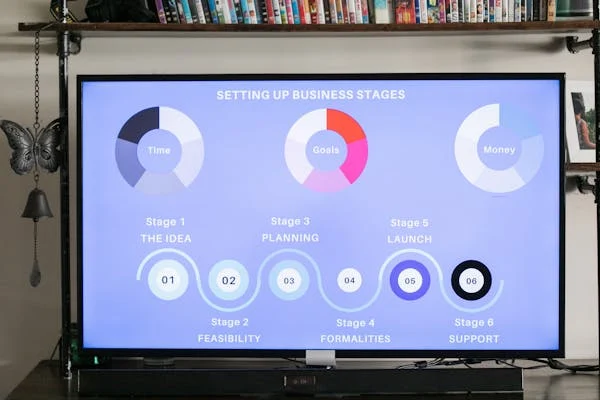Introduction
Promoting Methodologies for New Organizations: A Fledgling’s Guide
Starting a new business is an exciting journey, but it also comes with unique challenges, especially when it comes to attracting customers and building your brand. Developing the right marketing strategies is crucial for any new business aiming to succeed in today’s competitive marketplace. Without an effective plan, even the best products or services can struggle to gain visibility and traction.
This guide will introduce you to the basics of marketing strategies tailored for new businesses. Whether you’re working with a small budget or trying to stand out in a crowded industry, you’ll find practical tips to help you connect with your target audience, build brand awareness, and drive growth. From social media marketing to SEO techniques, we’ll cover the essential steps to create a strong foundation for your business’s success.

The Importance of Marketing Strategies and Their Use
In today’s competitive business landscape, a well-crafted marketing strategy is essential for achieving sustainable growth and success. Marketing strategies act as a roadmap, guiding businesses in identifying target audiences, delivering value, and reaching desired goals efficiently. Understanding the importance of marketing strategies and their application can help businesses thrive, regardless of their industry or size.
Why Are Marketing Strategies Important?
- Clarity and Direction Marketing strategies provide a clear direction for businesses to follow. They define objectives, outline key initiatives, and establish the steps necessary to achieve them. This clarity helps businesses stay focused and prevents wasted resources on unaligned efforts.
- Understanding Target Audiences A solid marketing strategy involves in-depth research and segmentation to identify the target audience. Understanding customer demographics, preferences, and behavior allows businesses to tailor their products, services, and messages effectively.
- Building a Strong Brand Consistent and strategic marketing efforts contribute to building a recognizable and trustworthy brand. A strong brand helps differentiate a business from competitors and fosters customer loyalty, which is critical for long-term success.
- Optimizing Resources Marketing strategies ensure that resources—time, money, and manpower—are allocated efficiently. By focusing on proven tactics and prioritizing efforts, businesses can maximize their return on investment (ROI).
- Adaptability and Growth In a dynamic market, a marketing strategy acts as a flexible framework that businesses can adapt to changes. Whether dealing with emerging trends, economic shifts, or new competitors, a well-thought-out strategy helps maintain relevance and promote growth.
How to Use Marketing Strategies Effectively
- Set SMART Goals Define specific, measurable, achievable, relevant, and time-bound (SMART) goals. Clear objectives provide a benchmark for success and help track progress.
- Leverage Digital Marketing Digital platforms play a crucial role in modern marketing strategies. Social media, search engine optimization (SEO), email campaigns, and pay-per-click (PPC) ads enable businesses to connect with audiences and measure results in real time.
- Embrace Content Marketing High-quality, relevant content is a cornerstone of effective marketing. Blogs, videos, infographics, and e-books provide value to audiences and position a brand as an industry authority.
- Monitor and Analyze Performance Regularly track the performance of marketing campaigns using analytics tools. Insights from data help refine strategies, improve outcomes, and stay ahead of the competition.
- Focus on Customer Engagement Engaging with customers through personalized communication and responsive support strengthens relationships and enhances customer satisfaction. Happy customers are more likely to become loyal advocates for your brand.

Marketing Strategies for Beginners
Starting your marketing journey can feel overwhelming, but with the right strategies, you can build a strong foundation for success. Here are some beginner-friendly marketing strategies to help you get started:
1. Define Your Target Audience
Understand who you want to reach. Research your audience’s demographics, preferences, and behaviors. Knowing your audience ensures your marketing efforts resonate and yield results.
2. Set Clear Goals
Determine what you want to achieve. Your goals could include:
- Increasing brand awareness.
- Driving traffic to your website.
- Boosting product sales.
Clear goals give direction to your strategies.
3. Leverage Social Media
Social media platforms are great for beginners due to their accessibility and wide reach. Choose platforms where your target audience is most active (e.g., Instagram, Facebook, or TikTok).
- Share engaging content like posts, videos, or stories.
4. Start with Content Marketing
- Write blogs or create videos on topics related to your business.
- Share helpful tips, how-to guides, or industry insights.
Focus on solving problems for your audience to build trust and authority.
5. Focus on Keywords and SEO
Search Engine Optimization (SEO) is key for driving organic traffic to your website.
- Research keywords your audience uses to search for products or services.
- Include these keywords naturally in your website, blog posts, and product descriptions.
- Optimize titles, meta descriptions, and images for better visibility.
6. Utilize Email Marketing
Build an email list and engage with your audience through regular newsletters.
- Offer a free resource (like an ebook or discount) in exchange for email sign-ups.
- Send updates, special offers, or personalized recommendations to nurture relationships.
7. Experiment with Paid Advertising
Platforms like Google Ads or Facebook Ads allow you to run targeted campaigns.
- Set a small budget to test ads.
- Monitor performance metrics like clicks, conversions, and return on investment (ROI).
8. Collaborate and Network
Partner with influencers, bloggers, or other businesses to expand your reach.
- Look for collaborations that align with your brand values and audience interests.
- Networking at local events or online communities can also help build connections.
9. Analyze and Refine Your Efforts
Use tools like Google Analytics, social media insights, or email marketing reports to track your performance.
- Identify what’s working and what isn’t.
- Adjust your strategies to improve results.
10. Stay Consistent and Patient
Marketing takes time and effort to show results.
Final Thoughts

Marketing for beginners is about building a strong foundation by understanding your audience, creating valuable content, and using available tools and platforms effectively. With consistent efforts and a willingness to learn, you can grow your brand and achieve your goals.

Youra We ve got enough I and the allied commander Or we would be able to